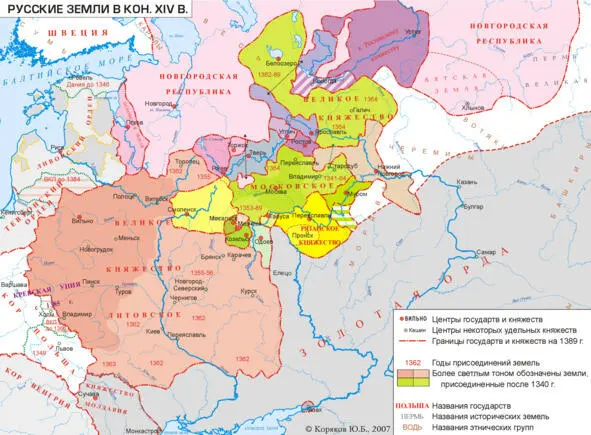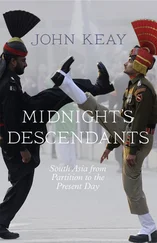Since 1240, the Russian principalities have been seized by the Mongol conquerors, who had recently conquered the Jin empire. The northern fragments of Russia get rid of direct invasion, but pay heavy tribute with property, money and people. Prince Alexander Nevsky prefers to «be friends» with the Golden Horde, inevitably introducing Asian orders and customs in Russia, rather than to compete with her forces, hardly reaching forty thousand regular troops. In theory, this is possible. So the Volga Bulgars in 1223 defeated the powerful Mongol army. More than five thousand captured Mongols are mockingly exchanged by the winners for the same number of rams. But in 1236 the expeditionary corps of Ubedei increased to 120—150 thousand soldiers. The Volga Bulgars no longer have a reception against this.
…Polotsk avoids the Mongol invasion, but falls into the structure of the Lithuanian principality – Western Russia. Many princes who disagree with the doctrine of Nevsky leave for Livonia (modern Lithuania is the former province of this state), together with the squads. Here they experience the action of two centers of gravity – Muscovite Rus and Poland. Separated from the Horde by the Wild Field, as well as by the state that is already paying tribute, they are left to their own devices.

…Russian lands at the end of the fourteenth century. The Grand Duchy of Moscow is highlighted in green. To the left and below is the Grand Duchy of Lithuania, a kind of reflection of Russia, a Slavic state, not like it
Due to their geographical location, the steppe southern principalities are exposed to the most powerful blows of the Mongols, lose their importance and are no longer able to recover on their own. Since the thirteenth century, Kiev has been ruled by the Baskaks of the Nogai ulus, local administrators who do not even need to appear at the khan’s headquarters to approve the label. The city ceases to be the residence of the metropolitan. In the middle of the fourteenth century Kiev captures and includes the Principality of Lithuania. To do this, he has to fight with the Horde troops weakened in civil strife.
Cash is again becoming a low-expressive two-hundred-gram elongated ingots. In the North, due to the custom of cutting such money into several parts, the name «ruble» appears.
The era of Dmitry Donskoy, opening from the second half of the fourteenth century, is controversial. The victory over the troops of Mamai, the father-in-law of the ruler of the Horde, Berdibek, in 1380, does not really change anything. The remnants of Mamai’s troops, gaining strength in the Crimea, are finished off by the heir of Genghis Khan, Khan Tokhtamysh. Mamai lives not far from Kafa, gets involved in a fight with the Genoese who sheltered him, and as a result loses his head. Jagiello (Yakov), Mamai’s ally, he is also Vladislav II Jagiello, Prince of Vitebsk, Grand Duke of Lithuania, later – King of Poland, does not take part in the battle. In 1384, on one of the facets of History, an important issue was resolved. Union with Poland, or an alliance with Russia? The first option drops out. Two years later, the Lithuanian principality was converted to the Catholic faith. The Grand Duke marries 13-year-old Polish princess Jadwiga. His descendants (from the second and fourth wives) form the Jagiellonian dynasty, which ruled the Commonwealth until 1572.
Vasily the First Dmitrievich, the eldest son of Dmitry Donskoy (1371—1425) – is held as a hostage in the Horde, flees to the Moldavian principality, successfully marries the daughter of the Grand Duke of Lithuania Vitold, Sophia. In 1389, he received a label at the headquarters of the khan, and became the Grand Duke of Moscow. Witold, meanwhile, decides to measure strength with herself, the Golden Horde, reeling in internecine strife. The prince refuses to extradite Tokhtamysh, who has been deprived of his post, to another applicant for the khan’s title, Edigei. The maximum task is to plant Tokhtamysh in the Horde, and to take the throne of Russia with the help of a powerful protégé. Forces of the parties. Vitovt, knights of the Teutonic Order, Tokhtamysh – 38 thousand fighters. Golden Horde – 90 thousand soldiers. The battle will take place on the Vorksla River. The interest of the Order is Pskov, promised by Vitovt, in case of victory. Heavily armed knights pursue a feigned retreating enemy. Their lightly armored horses then receive a shower of arrows from their bows and crossbows. On the shoulders of the now quite sincerely retreating Teutons, the Horde crashes into the infantry and completes the rout. The loss of the «Litvin» – 18 thousand, the Horde, according to the chronicle – «very few.»
Vitovt, together with his rival friend, the Polish king Jagiello, still dreams of being known as the unifier of the Eastern Russian lands. In 1408, the first standing on the Ugra River (somewhat north of modern Kaluga) takes place. For some reason (the attack of Edigei’s troops on the territory of Russia and Lithuania itself), in view of an even more formidable enemy, the battle does not take place. Then the Horde, dissatisfied with the delay in the payment of tribute, approaches Moscow, ruins the neighborhood and, having received solid ransom payments, returns to its steppes.
Obliged to the Grand Duchy of Lithuania for his initial advancement, his wife, and who knows what else, Vasily the First easily yields to his western neighbors Vyazma, Smolensk, and other Russian lands.
Vasily the Second Vasilyevich (Dark), 1415—1462, son of Vasily the First and Sophia Vitoldovna. He spends a lot of time in a tough struggle for the throne. One of the competitors is the prince of Zvenigorod Yuri Dmirievich Shemyaka («Shemyaka», the one who can change his neck – a generic nickname), the son of Dmitry Donskoy. The rival is also his eldest son, Vasily Yuryevich (nickname – «Oblique»), the grandson of Donskoy, and the younger son – Dmitry Yuryevich Shemyaka. The Golden Horde court in this dispute issues a label to Vasily Vasilyevich. A series of battles with an uncertain outcome followed, repressions against supporters of opponents, giving rise to a «fifth column», and new coups. All princes designated here have occupied the Russian throne for some time. Vasily the Second is the one who manages to hold out on it longer than others.
The second most successful is Prince Dmitry Yurievich. Having lost the Moscow reign, he heads the prestigious Novgorod Republic. But, in the end, the people of Vasily the Dark bribe the prince's cook (nicknamed "Toadstool") and that "armor" potion (apparently, arsenic) into the chicken served to the ruler.
The right of inheritance becomes direct, not "ladder" as before, but from father to son, bypassing younger brothers.
An important event of the time – the Russian Church becomes autocephalous. In 1435, Isidore (Kievsky), a Greek by origin, was proclaimed Metropolitan of the Grand Duchy of Moscow (formally – Kiev and All Russia), at the suggestion of the Patriarch of Constantinople. In Moscow, he convinces Vasily II of the urgency of convening an Ecumenical Council, where the contradictions between Catholics and Orthodox will be erased. The prince gives the Metropolitan a hundred of his entourage, money and sends them to Italy, with the order: "So that nothing new happens with us." In March 1441, having driven around Europe, Isidore returned to Moscow. Here he gives Basil II a message from Pope Eugene the Fourth with a request for help in the reunification of the Catholic and Russian Churches. During his episcopal service in the Assumption Cathedral, Isidore mentions the Pope as one of the primates of the Church. Three days later, by order of Vasily II, the Metropolitan was transferred to the Miracle Monastery, used as a prison for noble persons. Later, probably with the secret permission of the prince, Isidore fled to Europe, Byzantium, then Rome, where he controls the revenues of the Holy College of Cardinals.
Читать дальше













